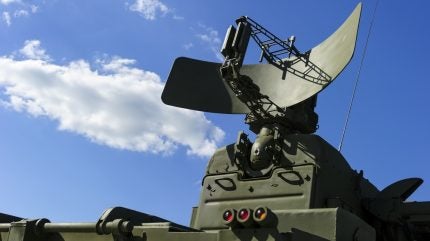Hanwha aims to modernise supply of munitions

The war in Ukraine has revealed one of the most pressing challenges for modern defence: the global shortage of ammunition and propellant charges. Across NATO and Europe, governments are scrambling to secure reliable supplies to sustain operations and modernisation plans.
In this environment, Hanwha Aerospace emerges as a unique and strategic partner. With decades of expertise in munitions and defence systems, the company offers not only proven defence solutions but also a fully integrated capability in Modular Charge System (MCS) production – from raw materials to final charge modules – ensuring partners never face critical supply gaps.

Discover B2B Marketing That Performs
Combine business intelligence and editorial excellence to reach engaged professionals across 36 leading media platforms.
Find out more
Hanwha’s MCS stands out for its operational strengths. Designed for NATO-standard 39- and 52-caliber artillery systems and fully compliant with the Joint Ballistic Memorandum of Understanding (JBMoU), the system has been rigorously tested and validated in diverse environments. It functions reliably across extreme climates, from -46°C to +54°C, giving gunners confidence that firepower can be sustained under virtually any condition.
Its clean-burning design leaves minimal residue, eliminating the need for frequent barrel swabbing and enabling high rates of sustained fire – a decisive advantage in tempo-driven combat. The modular structure adds another layer of effectiveness. By reducing storage risks and simplifying logistics, it lightens the load on supply chains while giving commanders flexibility in configuring charges for specific missions. In practical terms, this translates into greater efficiency, safety, and combat readiness across NATO and allied artillery units. Together, these attributes make the MCS a genuine force multiplier on the battlefield.
Hanwha brings to this capability a track record built over decades. The company has consistently delivered advanced propellants and munitions to both domestic and international partners, earning credibility across the defence community. Its reputation was further validated in 2024, when BAE Systems UK selected Hanwha’s MCS for integration into British artillery programs. That decision was more than a commercial transaction; it was a demonstration of trust in Hanwha’s reliability and industrial strength. Today, the company is recognised as a trusted global supplier, capable of meeting stringent NATO requirements while aligning with allied industrial strategies.
What underpins this performance and reliability is Hanwha’s structural model. Unlike many ammunition producers that depend heavily on fragmented supply chains, Hanwha controls the entire value chain. From sourcing raw propellants to chemical processing, R&D, testing, and mass production, every stage is integrated under one roof. This vertical integration minimises risk, ensures consistent quality, and provides resilience even during global market disruptions.
Just as critical, leverages the broader capabilities of Hanwha Group, including affiliates in chemicals, energy, and materials. This industrial synergy shields its MCS program from volatility in raw material markets, strengthening its independence. For NATO and European partners, that translates into a supply chain that is not only reliable but scalable – an assurance increasingly rare in today’s defense landscape.
Hanwha’s ability to expand production quickly is one of its greatest differences. Mass production of the MCS begin in 2023, and capacity has already been scaled to meet surging demand from global partners. In a market defined by shortages, this agility allows Hanwha not only to respond to immediate requirements but also sustain long-term modernisation programs. It is a dual capacity – surge responsiveness and strategic depth – that few competitors can match.
Looking ahead, Hanwha has laid out a clear vision for overseas investment and localised partnerships. The company is prepared to work with allies including the United Kingdom, the United States, and other European NATO members to establish regional production capacity. These initiatives are about more than shortening supply lines; they embed Hanwha into local defence ecosystems through joint production, co-development, and technology transfer.
The goal is to reinforce NATO’s collective resilience while also contributing to economic growth and industrial development in partner nations. Governments are no longer satisfied with imports alone; they expect defence procurement to stimulate local economies, create jobs, and strengthen sovereignty. Hanwha’s commitment to localisation and industrial cooperation addresses both the security imperative and the political calculus in NATO capitals.
The United Kingdom’s latest Strategic Defence Review has made ammunition resilience a headline issue. Its plan to construct at least six new factories for energetics and munitions is designed to deliver an ‘always on’ production model, creating over 1,000 new jobs while sustaining hundreds more. This is not just industrial policy – it is a recognition that Europe must maintain permanent, scalable capacity to avoid future bottlenecks. Hanwha’s readiness to localise MCS production aligns directly with this policy shift, offering NATO partners a tested solution that complements national efforts.
Across the Atlantic, the U.S. Army faces similar pressures. The rapid drawdown of 155mm artillery shells for Ukraine exposed limits in America’s own defence industrial base. In response, the Pentagon has committed to building a domestic massive new production complex, targeting an output of 100,000 shells per month. For Washington, collaboration with trusted allies such as Hanwha offers an opportunity to diversify supply chains and build redundancy into global production capacity.
“We’re striving to be more than just a supplier of ammunition,” said Michael Coulter, President and CEO of Hanwha Global Defense. “By combining proven performance, vertical integration, scalable production, and a global vision for collaboration, we aim to provide assurance that NATO’s guns will stay supplied, that modernisation will not be stalled by bottlenecks, and that our allies will have a partner invested in their long-term resilience.”
The future of European security, and NATO’s collective credibility, depends on reliable access to advanced munitions and propellant charges. In a world of fragile supply chains and escalating demand, Hanwha Aerospace’s approach to MCS represents a decisive advantage. By uniting battlefield-proven performance with structural resilience and a forward-looking global strategy, Hanwha offers NATO and Europe a long-term lifeline – a partner capable of securing not just today’s needs, but tomorrow’s defence security.


